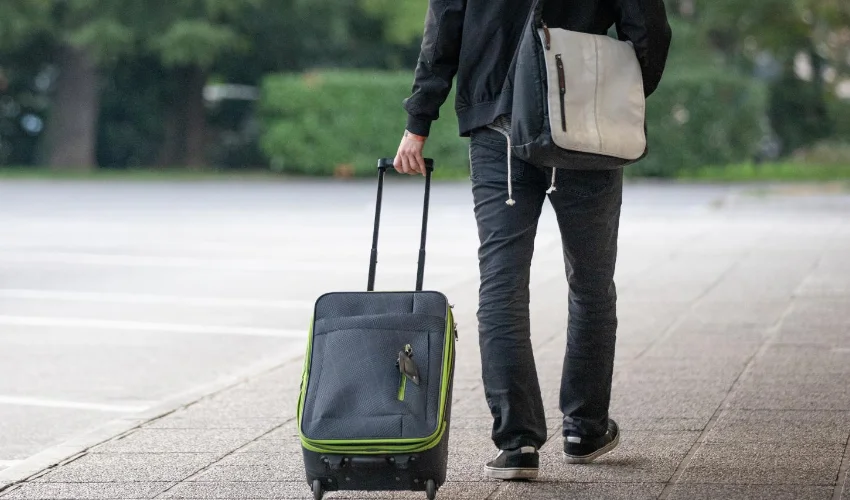Living with diabetes requires careful management of various aspects, including medication schedules. However, traveling across different time zones can present challenges for individuals with diabetes and their caregivers. Adjusting medication schedules appropriately becomes crucial to maintain optimal blood glucose control and overall health. In this article, we will explore the importance of adjusting medication schedules when traveling across time zones, provide practical tips for navigating different time zones, and discuss the role of healthcare professionals in assisting patients and caregivers in this process.
Understanding the Impact of Time Zones on Medication Schedules
Maintaining a regular medication schedule is essential for individuals with diabetes, as it helps in managing blood glucose levels effectively. The body’s internal clock, known as the circadian rhythm, plays a significant role in regulating various physiological processes, including insulin secretion and glucose metabolism. However, traveling across different time zones disrupts the circadian rhythm, potentially affecting blood glucose control.
When traveling to a different time zone, the body needs to adjust to the new local time, and this adjustment can impact the timing and dosage of diabetes medications. Failure to adjust medication schedules can lead to inadequate glucose control, risking both short-term complications such as hyperglycemia or hypoglycemia and long-term complications associated with poor diabetes management.
Importance of Planning Ahead
Proper preparation before traveling is crucial for individuals with diabetes to ensure a smooth transition and effective medication management. Here are some essential steps to consider:
- Consultation with healthcare professionals: Before embarking on a trip, it is advisable to consult with healthcare professionals, such as primary care physicians or endocrinologists, who specialize in diabetes management. They can provide personalized guidance and make necessary adjustments to medication schedules based on individual needs and travel plans.
- Gathering necessary supplies and medications: It is vital to ensure an adequate supply of medications, testing supplies, and any other diabetes-related equipment for the duration of the trip. Carrying extra supplies helps prevent unexpected shortages, especially in unfamiliar locations.
Strategies for Adjusting Medication Schedules
Adjusting medication schedules when traveling across time zones requires careful planning and consideration. Here are some strategies to help navigate different time zones effectively:
- Time zone conversion methods and tools: Use reliable time zone conversion methods and tools available through various apps and websites to determine the time difference between your departure and destination locations. This will help you in planning medication adjustments.
- Adjusting insulin doses for long-haul flights and significant time differences: Long-haul flights and substantial time differences may require specific considerations. In consultation with healthcare professionals, it may be necessary to modify insulin doses or timing to accommodate the duration of the journey and the time difference at the destination.
- Considerations for different types of diabetes medications: Different diabetes medications have varying effects and durations of action. For example, rapid-acting insulin may need to be adjusted closer to meal times, while long-acting insulin may require a modification in dosage or timing. Consult with healthcare professionals to understand how to adjust specific medications for optimal control.
Practical Tips for Traveling with Diabetes
Managing diabetes while traveling can be easier with the following practical tips:
- Carrying essential supplies and medications in hand luggage: Keep diabetes medications, insulin, and testing supplies in your carry-on luggage to ensure they are easily accessible during the journey. Baggage delays or losses can occur, and having essential supplies at hand reduces the risk of running out.
- Managing storage and temperature requirements during travel: Follow the manufacturer’s instructions for storing diabetes medications and insulin at the correct temperature. Insulin is sensitive to extreme temperatures, so consider using travel cases or cooling packs to maintain the recommended storage conditions.
- Staying hydrated and maintaining a healthy diet while traveling: Drink plenty of water to stay hydrated during the journey, as dehydration can affect blood glucose levels. When it comes to meals, try to maintain a healthy and balanced diet as much as possible, considering local food options and portion sizes.
Collaboration with Healthcare Professionals
Healthcare professionals play a crucial role in supporting individuals with diabetes and their caregivers during travel. Here’s how they can assist:
- The role of healthcare providers in guiding medication schedule adjustments: Healthcare professionals can provide specific recommendations based on an individual’s medical history, current treatment plan, and travel itinerary. They can guide patients on adjusting medication doses and schedules to ensure optimal blood glucose control.
- Seeking expert advice when dealing with complex cases: Some individuals with diabetes may have unique challenges or medical conditions that require specialized attention. In such cases, consulting with endocrinologists or diabetes educators who have expertise in managing complex diabetes cases during travel can be beneficial.
- Utilizing technology and telemedicine for remote assistance: Technology, such as telemedicine, can bridge the gap between patients and healthcare providers when face-to-face consultations are not feasible. Remote assistance through video consultations or secure messaging platforms allows healthcare professionals to monitor progress, answer questions, and make necessary adjustments to medication schedules.
Dealing with Jet Lag and Transitioning to New Time Zones
Jet lag, caused by rapid travel across multiple time zones, can disrupt sleep patterns and impact blood glucose control. Consider the following strategies to minimize its effects:
- Understanding the effects of jet lag on blood glucose levels: Jet lag can lead to disturbances in sleep, appetite, and physical activity, which can affect blood glucose levels. Be aware of these potential changes and monitor blood glucose more frequently during the initial days after arrival.
- Strategies to minimize the impact of jet lag: Adjusting to the new time zone gradually by gradually shifting sleep and meal times can help reduce the impact of jet lag. Exposure to natural light and staying active during the day can also aid in the adjustment process.
- Adjusting medication schedules upon arrival in a new time zone: Upon arrival at the destination, adapt medication schedules to align with the local time zone. Work closely with healthcare professionals to determine the best approach for adjusting medication doses and timing.
Addressing Safety Concerns
Ensuring safety while traveling with diabetes involves taking necessary precautions and being prepared for unexpected situations:
- Ensuring continuous access to medical information and emergency contacts: Carry a diabetes identification card or wear a medical bracelet that provides essential information about your condition, including emergency contact numbers. Also, keep a copy of your medical history and prescriptions in case they are needed during the trip.
- Familiarizing oneself with local healthcare resources at the destination: Research and identify local healthcare facilities and pharmacies at your travel destination. Knowing where to seek medical assistance in case of an emergency or unexpected medical need can provide peace of mind.
- Carrying relevant identification and medical documentation during travel: Keep prescriptions, medication labels, and any necessary documentation easily accessible during the journey. This will help with airport security checks and ensure you have the required information readily available.
Potential Challenges and Precautions
While traveling, individuals with diabetes may face certain challenges and should take additional precautions:
- Dealing with unpredictable delays and disruptions during travel: Travel delays and disruptions can be stressful, particularly when managing diabetes. Always carry extra diabetes supplies and medications to account for unexpected situations.
- Precautions for individuals using insulin pumps or continuous glucose monitoring (CGM) systems: If you use an insulin pump or CGM system, ensure that you have backup insulin pens, syringes, and fingerstick glucose meters available. Technical malfunctions or security restrictions at airports may require alternative methods for insulin delivery and glucose monitoring.
- Managing medication schedules during short layovers or quick transitions: When faced with short layovers or quick transitions between flights, plan ahead to ensure you have enough time to attend to your medication needs. Consider adjusting medication schedules and doses accordingly to maintain appropriate blood glucose control.
Navigating different time zones and adjusting medication schedules is crucial for individuals with diabetes to maintain optimal blood glucose control while traveling. By planning ahead, collaborating with healthcare professionals, and implementing practical strategies, individuals with diabetes and their caregivers can confidently manage medication schedules and enjoy safe and fulfilling travel experiences. Remember, proactive communication with healthcare providers and being prepared are key to successful diabetes management during travel.




